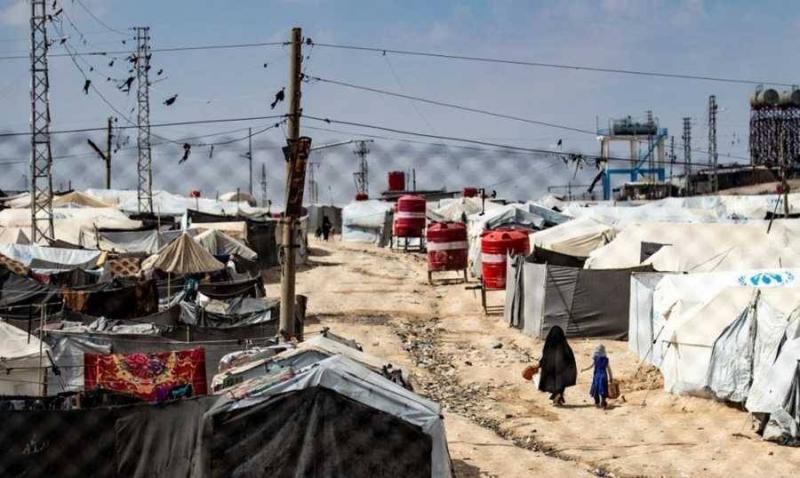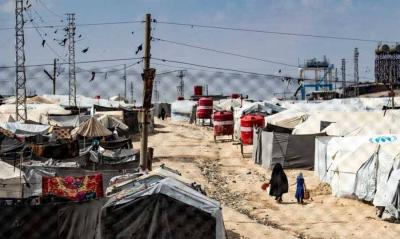The Ministry of Interior and Municipalities launched a roadmap last week to organize the legal status of Syrian displaced persons and their return mechanism at the headquarters of the General Directorate of General Security. Various plans have emerged, yet the outcome remains the same: an increase in the presence of Syrians, whether as political or economic refugees, infiltrators, or legal residents across different Lebanese regions, engaging in numerous sectors of work and illegally owning or renting homes and commercial shops in most cases, as reported by "Nidaa Al-Watan." Therefore, following the absence of any tangible results from previous directives issued by the Minister of Interior and Municipalities in the caretaker government, which were based on municipalities, the expectations now shift to the work of the General Directorate of General Security on the Syrian displacement issue, after it received data on displaced persons from the United Nations High Commissioner for Refugees (UNHCR), which includes nearly 1.486 million displaced individuals without classification or indication of registration dates or entry into Lebanon, complicating the determination of their legal status, as revealed by General Security Director Major General Elias Beiry.
The significance of delivering this file to General Security, according to entities monitoring the displacement file, lies in its legal authority to oversee entry and exit from Lebanon through land, sea, and air crossings. It is also the duty of General Security, alongside the army, to prevent infiltration across the borders into Lebanon and to deport those without legal documents and residency permits within Lebanese territory. The importance of the data and information transferred from UNHCR to General Security lies in its ability to conduct comparisons between this data and the information held by General Security based on its operations. This enables General Security to identify registered displaced Syrians who simultaneously travel back and forth from Lebanon to Syria and examine the legal aspects of Syrians present in Lebanon, thus determining those who lose their displacement status and need to be repatriated to their country.
Simultaneously, the importance of diplomatic work and forming an external pressure force supportive of Lebanon in this file is highlighted. This is what successive governments have failed to achieve. Recently, however, there has been intensive diplomatic work, particularly with Europeans, who are addressing this file from a unified perspective. Deputy Simon Abi Ramia (head of the Lebanese-French parliamentary friendship committee and member of the Lebanese-European friendship committee) has been visiting Paris and Strasbourg to meet with decision-makers and French and European deputies, presenting them with the facts of Syrian displacement to Lebanon with figures. To ensure that these Western officials do not perceive this effort as emanating from a specific faction or party in Lebanon, an agreement was made between Abi Ramia and Speaker of Parliament Nabih Berri to form a delegation to visit the European Parliament and inform them that this is a unified Lebanese position agreed upon by all parliamentary and political components. This parliamentary delegation successfully visited Brussels last February, where they met with decision-makers at the European Parliament and within the European Union, in addition to officials from the Belgian Ministry of Foreign Affairs.
The European approach to the displacement file is based on two aspects, according to Abi Ramia: the first is humanitarian, considering that the displaced are opponents fleeing war and persecution in Syria; the second is legal, recognizing that these Syrians have displaced to Lebanon under the 1951 United Nations Convention relating to the Status of Refugees, which they use to support displaced persons in securing their dignified daily lives. He points out that many European deputies are not negative towards Lebanon; they appreciate the country, but they are unaware of the actual details about Syrian displacement, its significance, and danger, and do not consider the negative repercussions this displacement has on Lebanon at the security, economic levels, and on the Lebanese entity and identity. Here lies the importance of what they are doing.
The Lebanese delegation explained to the European deputies that the voluntary and safe return they advocate is detrimental to Lebanon, as it encourages the continued presence and gradual integration of Syrians into Lebanese society. They informed them about the details and repercussions of this issue with figures and facts. Abi Ramia notes that during the meetings, they discovered that the UN Refugee Agency has an office in Syria assisting those living in poverty there. Their basic request was that instead of aiding the displaced in Lebanon, which is seen as an incentive for Syrians to earn money here, the funds should be sent to Syria to assist the Syrians in their homeland, effectively facilitating their return while alleviating this burden from Lebanon.
It appears that the visit of the Lebanese parliamentary delegation to the European Parliament is beginning to bear fruit, at least in terms of showing European interest in the file. For instance, European Parliament member Geoffroy Didier visited Lebanon this week and met with Deputy Fadi Alama, the head of the Foreign and Expatriates Affairs Parliamentary Committee, and Abi Ramia, discussing the issue of Syrian displaced persons in Lebanon and the European Parliament's contribution to their return. Abi Ramia considers Didier's visit to Lebanon a positive European signal indicating interest in following up on the displacement issue. He highlights ongoing communication with multiple European deputies, keeping them updated on the intricate details concerning displacement. Abi Ramia sees a beginning of understanding among some European deputies regarding Lebanon's stance, which may be translated in the future into votes on decisions in the European Parliament related to the displacement file, with the goal of creating a pressure force from European deputies in favor of Lebanon.




